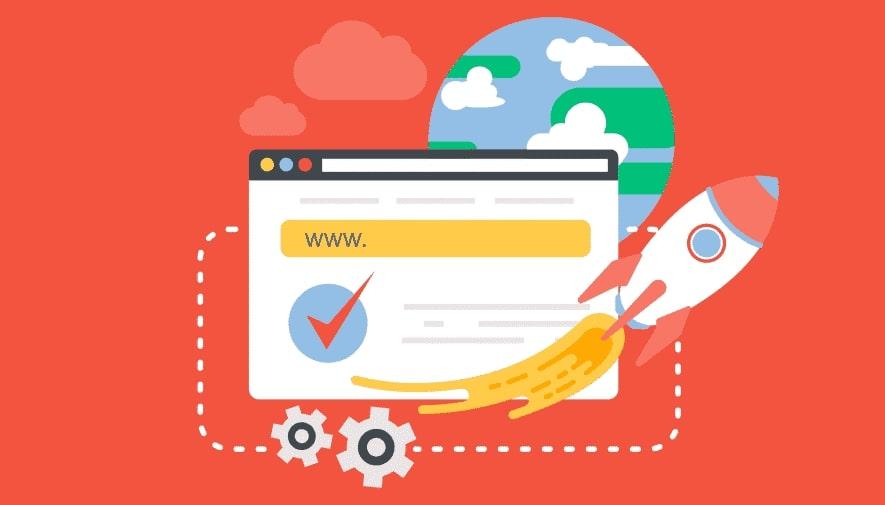How do you measure Page Speed?
Page speed is often confused with “site speed,” which is actually the page speed for a sample of page views on a site. Page speed can be described in either “page load time” (the time it takes to fully display the content on a specific page) or “time to first byte” (how long it takes for your browser to receive the first byte of information from the web server). Page speed is a measurement of how fast the content on your page loads.
No matter how you measure it, a faster page speed is better. Many people have found that faster pages both rank and convert better.
To most people, page speed is usually a reflection of their Internet Service Provider, and is never really thought of as an internal issue. While download speed and Internet packages definitely play a part in how quickly your website loads, there is an entirely separate list of factors that determine how quickly your content appears in someone’s browser.
Back in 2010, Google determined page speed was such an important aspect of how people experience a website, they included it in their ranking factors, which now greatly affect how your website appears in the SERPs. Nearly half of all consumers on the Internet expect a webpage to load in 2 seconds or less; while the experts at Google believe an optimized website worth its top ranking should load in under half a second.
These figures are backed by countless studies that show page speed can lead to serious losses in transactions solely due to the extra time in which people become frustrated and abandon a purchase in the online sales cart.
That’s why we’ve chosen to look at page speed from the small business perspective, and give you the resources to examine where your website could stand for some improvements.
What Factors Determine Page Speed?
On the surface, it’s generally impossible for the average website owner to know what is preventing their pages from loading efficiently. Generally speaking, each of the following can contribute to your overall page speed:
- Your Web Host: Where you host your site pays massive dividends when it comes to customer experience. If you’re coerced by a cheap offer it could be the first mistake in regard to slow page speeds. Avoid this mistake by hosting your site with BeeHosting.pro!
- Large Images: There is a big difference between the necessary resolution for print and screen-based imagery. For most purposes 1000 pixels at 72 dpi should suit your needs; however, larger file sizes can also be compressed to strip unnecessary data.
- External Media: Embedding YouTube videos and other content is a great idea but make sure it’s only as large as you need it to appear in terms of frame size.
- Un-optimization for certain browsers/devices: Your website will behave differently on every web browser and device. While this isn’t a problem most of the time, if your website is working great on Google Chrome, but isn’t formatting correctly on Safari then your ranking will take a penalty.
- Too many ads: Too many ads can make your speed drag so only use them if they’re worth the extra processing.
- Your theme: If you’re operating on WordPress or another site builder the theme you chose may have complex coding which adds to your load times.
- Widgets: Widgets can be coded very densely requiring significant processing power.
- Code: The true back-end to every website comes down to the coding. If your HTML or CSS is too heavy it will lower your page speed.
How To Determine If Your Website Is Loading Slowly
Fortunately, there a several accredited web tools that assist you in finding where the weak points in your website are occurring.
My first recommendation would be PageSpeed Insights from Google. The whole point of page optimization is to make Google happy, so knowing what they recommend for better page ranking is critical.
As you can see in the image below, even Beehosting.pro has a few flags they recommend fixing, but not everything can be optimized when choosing the functionality of your site. Fortunately, our user rating ranked 100/100 which is the ultimate goal.
Some additional resources for analyzing your page speed include:
- Google Webmaster Tools to check your site load time month by month
- Google Analytics Plugin for WordPress
- Pingdom website speed check
SEO Page Speed Best Practices
In order to comply with Google’s Best Practices for page speed, implement the following:
- Enable Compression
- Minify CSS, Javascript, and HTML
- Reduce Redirects
- Leverage Browser Caching
- Improve Server Response Time
- Use A Content Distribution Network
- Optimize Images










